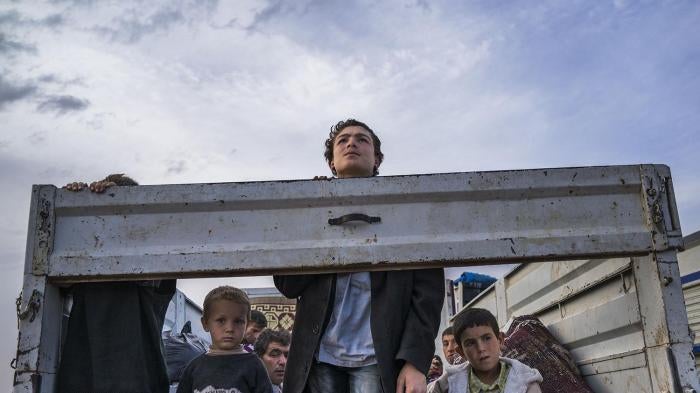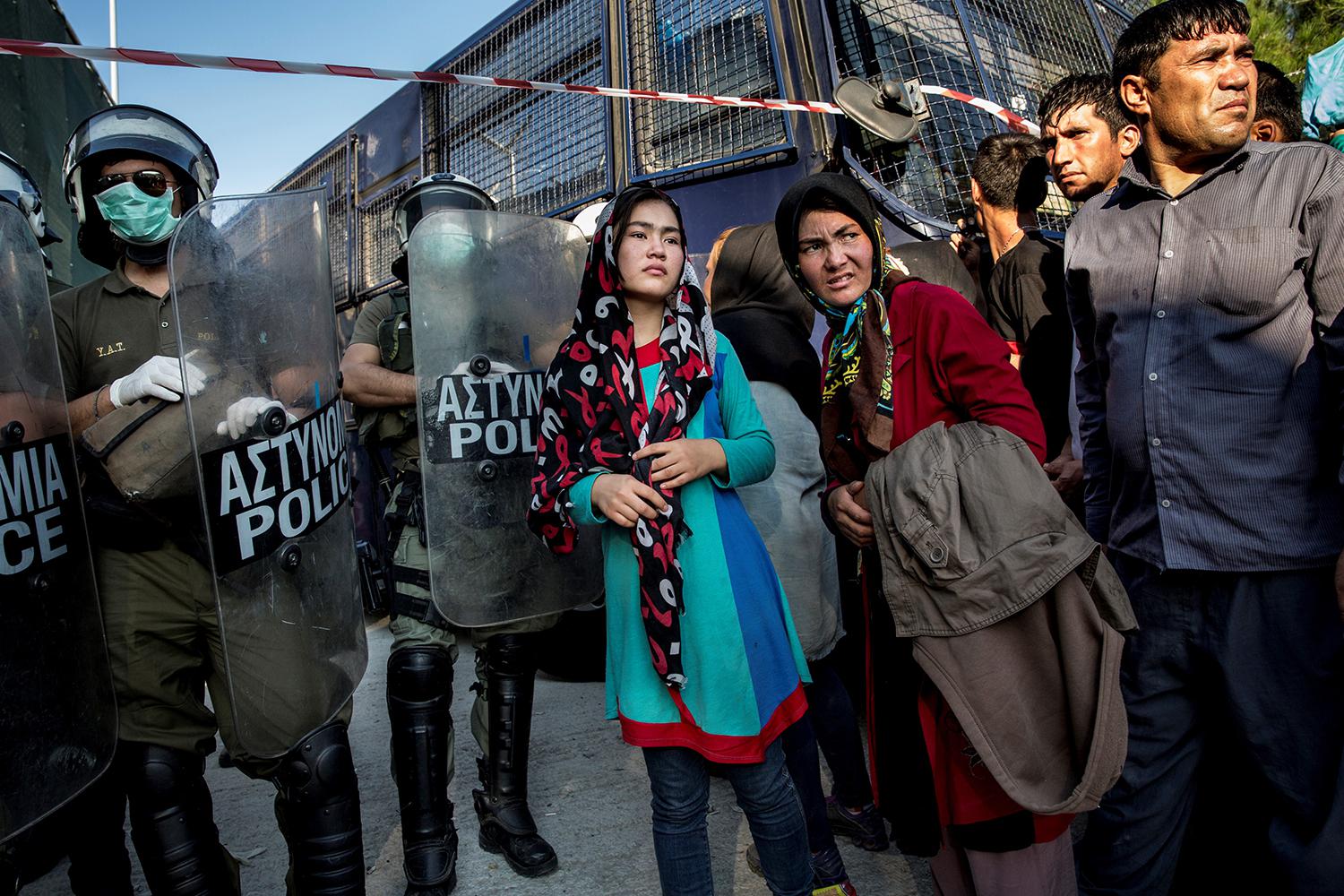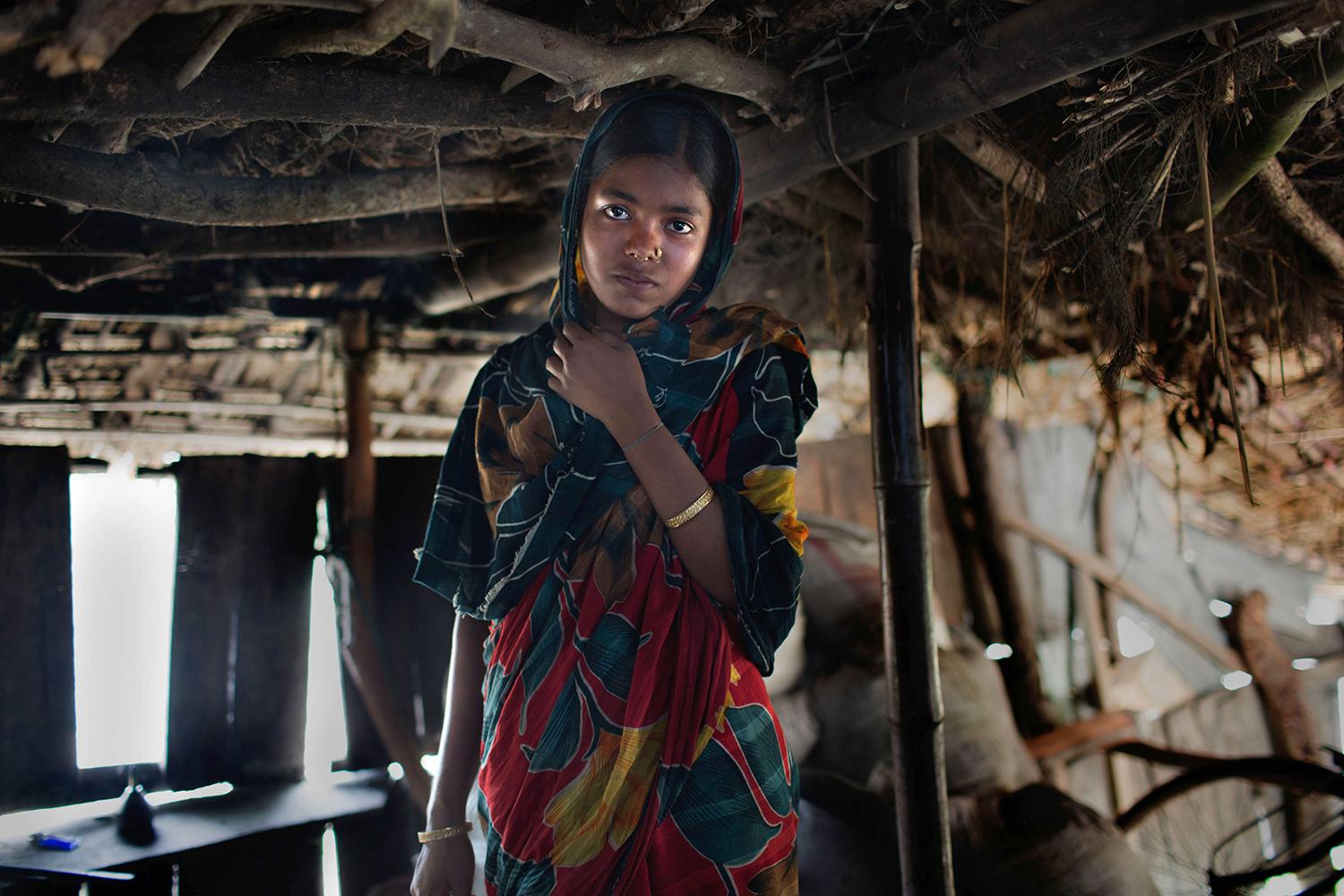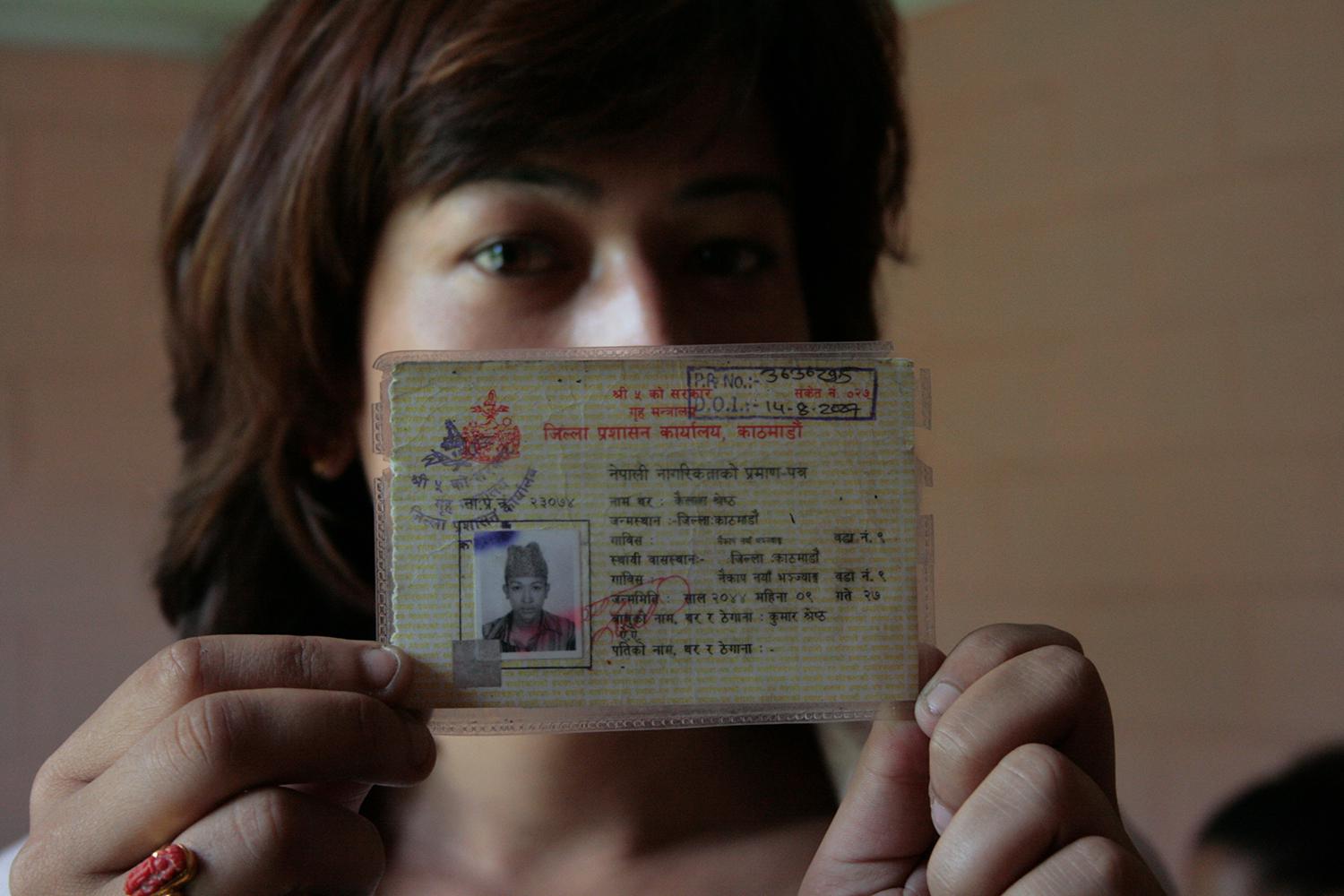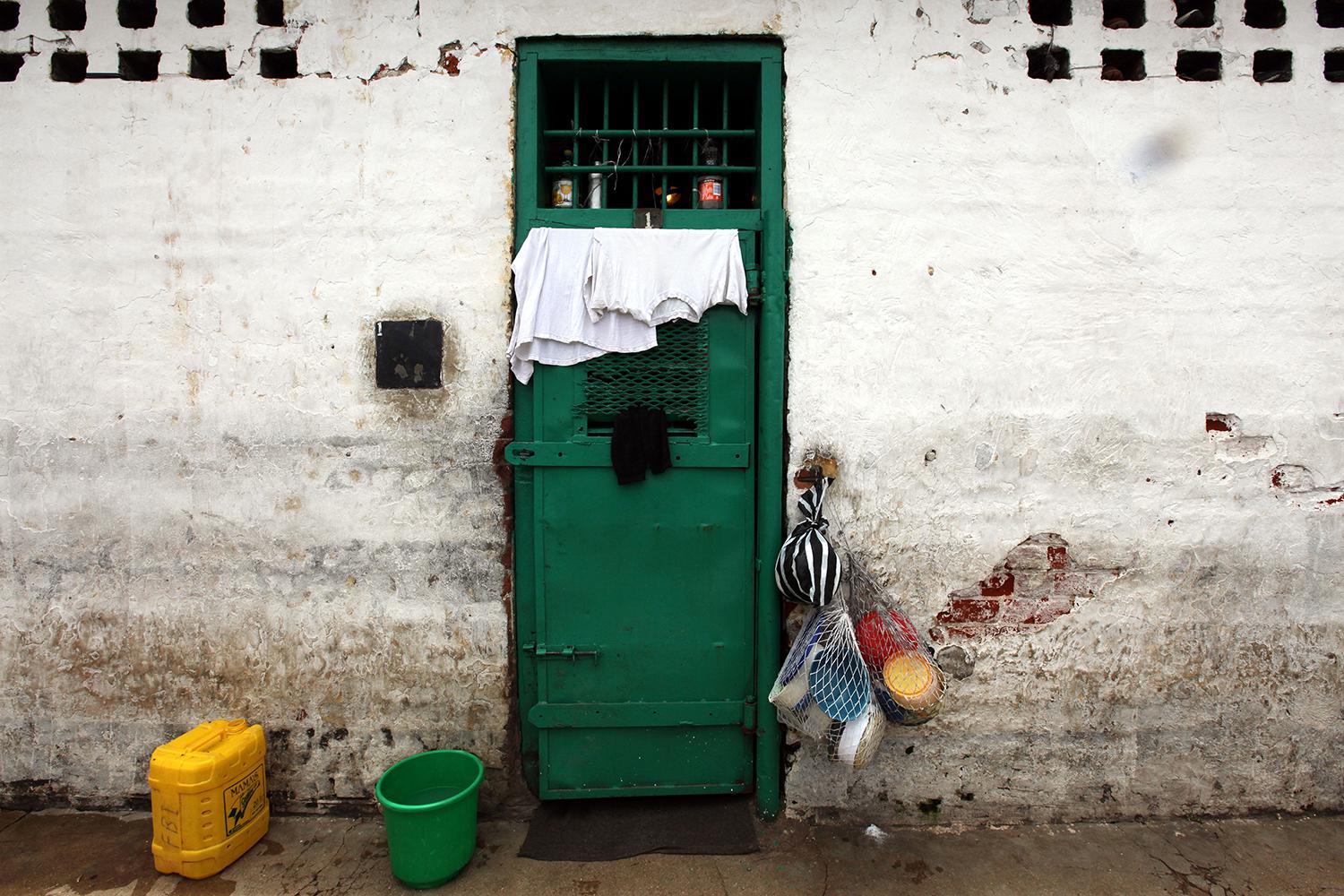The environment for human rights in Turkey deteriorated in 2015 with the breakdown of the Kurdish peace process, a sharp escalation of violence in the southeast, and a crackdown on media and political opponents of the ruling Justice and Development Party (AKP).
There were two general elections in 2015. In the June 7 election, the AKP lost its overall majority polling at 41 percent, while the left-leaning pro-Kurdish Peoples’ Democracy Party (HDP) polled 13 percent, for the first time passing the 10 percent threshold for entering parliament. Failure among the four main political parties to agree the formation of a coalition government precipitated a second general election on November 1, which the AKP won with 49 percent. The run-up to the November election was marked with violence, including an October 10 double suicide bombing in Ankara by individuals linked to the armed extremist group Islamic State (also known as ISIS). The bombing was the worst single attack in Turkey’s modern history, killing 102 people.
Turkey continued to host large number of refugees, asylum seekers, and migrants, primarily from Syria but also from Afghanistan, Iraq, and other countries. The number from Syria surged in 2015, bringing the total to 2.2 million. Conditions and rights protections for refugees, asylum seekers and migrants remain uneven at best, including in relation to education and employment.
Turkey was the main transit route in the European Union for asylum seekers and migrants in 2015, prompting Brussels to agree to a migration action plan with Ankara in November. A lack of effective protection in Turkey for Syrians and others, existing border restrictions with Syria imposed by Turkey, and Turkey’s record of police abuse gave rise to concerns that the deal could deny people access to asylum, trap people in Syria, and lead to police abuse and detention of asylum seekers who try to travel to the EU.
The war in Syria also had a growing impact on Turkey’s domestic politics. The AKP publicly advocated the overthrow of the Assad government and creation of a “safe zone” in northern Syria to house Syrian refugees. The latter proposal was strongly opposed by refugee and rights advocates who feared that Syrians could effectively be denied the ability to seek protection outside the country or returned to Syria while becoming easy targets for armed forces. The most notable shift in Turkey’s Syria policy came after the July Suruç bombing when Ankara reached an agreement with the United States to open a Turkish airbase for coalition airstrikes against ISIS and to play a limited role in airstrikes.
Renewed Violence in the Southeast
The breakdown in 2015 of the government-initiated peace process with Abdullah Öcalan, the imprisoned leader of the armed Kurdistan Workers’ Party (PKK), was accompanied by an increase in violent attacks, armed clashes, and human rights abuses in the second half of the year. The latter included violations of the right to life, arrests of non-violent protesters and activists on terrorism charges, and ill-treatment of detainees.
Hundreds of attacks on HDP offices took place in the run-up to both elections, and two of its offices were bombed in the run-up to the June election. A bomb attack on a Diyarbakır HDP election rally on June 5 killed four. A former ISIS fighter is under investigation for the Diyarbakır bombing.
The most serious escalation of violence followed the June general election. The government held ISIS responsible for a July 20 suicide bombing that killed 32 students and activists from Turkey who had traveled to the southeast town of Suruç to join efforts to rebuild Kobani. The PKK blamed Turkish authorities for the bombing, and local PKK associates killed two police officers in nearby Ceylanpınar. In response, the Turkish air force repeatedly bombed PKK camps in northern Iraq and later in Turkey. The PKK countered with a series of deadly attacks on police and army conveys.
In early September, Turkish security forces placed the southeast town of Cizre under blanket curfew for eight days to conduct a military operation against the PKK’s youth wing, which reportedly had sealed off three neighborhoods. The government estimated that 40-42 militants were killed in the operation; the Diyarbakır Bar Association reported 21 civilians dead, 16 from firearm injuries. The authorities have not made the circumstances of the deaths public at time of writing, fueling concerns that they continue to be unwilling to ensure effective investigations and criminal accountability for alleged security force abuses. During further curfews and military operations in towns with neighborhoods sealed off by the PKK youth wing—including Silvan, Nusaybin, and Diyarbakir’s Sur district—civilian deaths were regularly reported by media and human rights organizations. There was a rise in credible reports of serious ill-treatment in detention.
On November 28, Tahir Elçi, a human rights lawyer and head of the Bar Association, was shot dead in Diyarbakır. The circumstances of his killing were under investigation at time of writing; it followed an attack on the police by individuals reported to be members of the PKK youth wing in which two police officers died and several police officers opened fire in response.
Starting in July, authorities launched a new wave of investigations into hundreds of Kurdish political party officials and activists, including mayors, detaining many on terrorism charges, including in cases where the evidence consisted of non-violent political association and involvement in peaceful protests or press conferences.
Despite thousands of killings and enforced disappearances of Kurds by security forces in the 1990s, only a handful of military personnel have faced criminal trial; in four cases in 2015, military personnel were acquitted, and in no case convicted. Turkey’s 20-year statute of limitations on the prosecution of unlawful killings remains a major obstacle to justice.
Freedom of Expression, Association, and Assembly
Government-led restrictions on media freedom and freedom of expression in Turkey in 2015 went hand-in-hand with efforts to discredit the political opposition and prevent scrutiny of government policies in the run-up to the two general elections.
In May, the Istanbul prosecutor’s office launched a terrorism and espionage investigation of Cumhuriyet newspaper for posting a video and news report showing trucks laden with weapons allegedly en route to Syria. President Recep Tayyip Erdoğan subsequently made speeches strongly condemning the newspaper and filed a separate criminal complaint. In November, the newspaper’s editor Can Dündar and journalist Erdem Gül were arrested and jailed pending trial.
In October, police raided the İpek Media group, including TV stations and newspapers, two days after the government had appointed trustees to run the parent company, Koza İpek Holding. Firing the staff and appointing new editors, both TV stations and newspapers are now pro-government organs. The government alleges the Koza İpek group is supportive of US-based cleric Fethullah Gülen—the head of a religious movement whose followers in Turkey are subject to an unprecedented crackdown—and has effectively seized the company’s assets. The government similarly moved against the Samanyolu Broadcasting Group, known for its support for the Gülen movement, by ending distribution of its TV channels on the state-owned Turksat satellite dish distribution platform.
Prosecutions of journalists, judges, prosecutors, and police for membership of an alleged “Fethullah Gülen Terrorist Organization” were ongoing at time of writing, although there is no evidence to date that the Gülen movement has engaged in violence or other activities that could reasonably be described as terrorism.
In November, the publisher Cevheri Güven and editor Murat Çapan of weekly news magazine Nokta were arrested and jailed pending trial for “inciting an armed insurrection against the government” for a satirical picture of Erdoğan and report. A court ordered all copies of the issue to be confiscated. The editor faces earlier charges of insulting the president and terrorist propaganda for a September cover of Nokta.
In September, the building of Hürriyet newspaper and its owner the Doğan Media Group came under direct attack by crowds, including a parliamentarian from the AKP, hours after Erdoğan had accused the newspaper of misrepresenting comments he made in a television interview. One week later, an Istanbul prosecutor initiated an investigation of news reports in Doğan media outlets. On September 30, a leading Hurriyet journalist, Ahmet Hakan, was attacked and beaten by four men who followed his car. Seven men were subsequently detained, one placed in pretrial detention, and the other six released pending completion of a criminal investigation.
Journalists continued to be fired from mainstream press outlets in 2015 for critical reporting, commentary, and tweets. Social media postings critical of the president and politicians by ordinary people also led to criminal defamation charges and convictions. A new trend in 2015 saw courts in several cases order pretrial detention of people for several months for allegedly insulting Erdoğan via social media or during demonstrations.
Three foreign journalists were deported in 2015 for their news reporting activities in the southeast, and a fourth, Mohammed Rasool, was in pretrial detention facing investigation on terrorism charges at time of writing.
In the first six months of 2015, Turkish authorities were responsible for almost three quarters of requests to Twitter worldwide for removal of tweets and blocking of accounts. In March, parliament passed new legislation allowing ministers to request the Communications Directorate (TİB) to block online content or remove it within four hours to “protect life and property, national security, the public order, [or] to prevent crime and to protect general health.” A court must approve the decision within 48 hours.
The authorities frequently impose arbitrary bans on public assemblies and violently disperse peaceful demonstrations, in some cases using powers conferred by a new domestic security law passed in March. For the first time ever, the Istanbul governor’s office banned the annual Istanbul Gay Pride march in June 2015, citing vague concerns about counter-demonstrations. Police dispersed groups who had assembled peacefully using tear gas and water cannons.
In a rare positive development, the five organizers of Taksim Solidarity and 21 co-defendants were acquitted in April of criminal charges relating to the 2013 Gezi park protests. The group was charged with forming a criminal gang, inciting and participating in unlawful demonstrations, and refusing orders to disperse. The court decision cited at length Turkey’s obligations to uphold the right to peaceful assembly under the European Convention on Human Rights.
Judicial Independence
Long-standing defects in Turkey’s justice system include threats to judicial independence, a pattern of ineffective investigation into abuses by security forces and other state actors, excessively long proceedings, and politically motivated prosecutions.
The AKP government in 2015 continued efforts to purge the police and judiciary of alleged supporters of the Gülen movement. During 2015, prosecutors, judges, and police officers with perceived links to the Gülen movement were jailed and charged with plotting against the government and membership of a terrorist organization. The main evidence being cited against judges and prosecutors at time of writing was decisions taken in the course of their professional duties rather than any evidence of criminal activity.
Refugees and Migrants
As of October 2015, according to official estimates, Turkey hosted 2.2 million refugees from Syria, 250,000 of them in camps, as well as more than 80,000 asylum seekers and refugees from other countries, notably Afghanistan and Iraq.
While Turkey has been generous in hosting large numbers of Syrian refugees, the government only grants Syrians temporary protection rather than refugee status, while other nationalities of asylum seekers do not receive that.
Turkish government schools are officially available to all Syrian primary and secondary school-age students registered for “temporary protection,” but at time of writing more than 400,000 children—over two-thirds of all Syrian children in Turkey—were receiving no form of education. Child labor is rampant among the Syrian refugee population as well as among other refugee groups in Turkey. Syrians and other refugees and asylum seekers are not legally allowed to work.
A growing number of refugees, asylum seekers, and migrants attempted to cross by sea from Turkey to the Greek islands in 2015, making it the main transit route into the European Union. This prompted Brussels to agree to a migration action plan with Ankara in November. Under the plan, Turkey agreed to curb migration flows to the EU, in exchange for €3 billion and the prospect of visa-free travel for its citizens in most EU countries and reinvigorated talks on EU membership.
More than 627 of people had died trying to make the crossing from Turkey to Greek islands at time of writing. The death of three-year-old Syrian Kurdish toddler Aylan Kurdi drew international attention to the crisis, but more than 100 children died trying to make the crossing since then, underscoring the lack of safe and legal routes to the EU.
In September, Turkish authorities prevented thousands of asylum seekers from attempting to cross the land border into Greece. At time of writing, Turkey had all but closed its borders to Syrian asylum seekers and was summarily pushing back Syrians detected as they try to cross.
Women’s Rights
Despite Turkey’s ratification of the Council of Europe Convention on Preventing and Combating Violence against Women and Domestic Violence, violence against women remains a significant concern in Turkey. The murder and attempted rape of Ozgecan Aslan in Mersin in February sparked mass protests calling for government action to stop the killing of women, including by their partners.
Key International Actors
The EU, EU member states, Council of Europe, and the US expressed serious concerns about Turkey’s record on media freedom and judicial independence, while commending Turkey for hosting nearly 2 million refugees from the war in Syria.
The decision by the European Commission to postpone publication of a critical annual report on Turkey’s human rights progress until after the November elections; the absence of a reference to human rights in an EU-Turkey summit statement when the migration action plan was agreed; and comments by Commission President Juncker that the EU should not “harp” on about Turkey’s rights record all raised concerns that the EU-Turkey migration cooperation may come at the expense of strong EU pressure on Turkey’s rights record.
The Council of Europe Committee of Ministers urged Turkey in March to comply with a group of European Court of Human Rights rulings by amending its Law on Meetings and Demonstrations to address restrictions on the right to peaceful assembly and to ensure effective investigation of excessive use of force “to ensure the accountability of all, including senior law enforcement officers.”
Turkey accepted recommendations made during its Universal Periodic Review at the Human Rights Council in January 2015 to create a fully independent national human rights institution but rejected recommendations to improve its legal framework for the protection of minorities.
In a May 2015 follow-up report on recommendations made to Turkey during his 2012 country visit, the UN special rapporteur on extrajudicial, arbitrary, and summary executions criticized the expanded power given to police to use firearms against demonstrators in Turkey’s new domestic security law, saying it was “in direct contradiction to the Special Rapporteur’s recommendation” and expressed concern at Turkey’s failure to prosecute military personnel for a 2011 air force bombing on the Turkish border near Uludere that killed 34 Kurdish men and boys.
